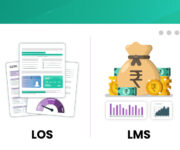In the world of digital commerce, the need for integrated, multi-channel payments continues to grow.
With billions of daily transactions, payment gateways are becoming the leading edge of security, functionality, speed, and reliability. In the same vein, payment service providers or PSP gateway are turning into invaluable team players for companies and eCommerce sites in setting up their payment systems and services.
In this article, we discuss the difference between a payment gateway and payment service provider and their individual roles in online transactions.
Payment Gateways: A Definition
A payment gateway is a technical backend service and software that sends credit/debit card information from a website to a payment network. They are like Point of Sale (PoS) machines, e.g., the credit/debit card readers at a cashier. Most gateways support all types of payment services, including authorisation and refunds.
It serves as an interface between the merchant, payment processor, the acquiring bank, and informs the customer of their buying status. All in all, a payment gateway oversees card payments, transaction encryption, and verification systems.
Many eCommerce merchants rely on PSP gateway to get access to payment gateways.
Also Read: Digital Banking From the 2030 Perspective
How does a payment gateway work?
A payment gateway focuses on building a secure channel between a merchant and the customer. The following are the basic steps to show how a payment gateway works:
Step 1: The customer places their selection in the shopping card and proceeds to checkout by filling in their debit/credit card details.
Step 2: Upon confirming the purchase, the customer’s web browser encrypts the sensitive payment information, which goes to the payment gateway.
Step 3: The payment gateway sends the encrypted transaction information to the payment processor, which is used by the acquiring bank (customer’s bank).
Step 4: The acquiring bank receives the request and responds to the payment processor with an approval or denial message (with reasons, if any).
Step 5: The payment gateway forwards the response to the merchant website. The whole process takes 2-3 seconds.
Benefits of a Payment Gateway
Payment gateways help rack up eCommerce transactions. Here are some of their benefits:
- Secure transactions using industry-standard encryption
- Safeguards sensitive data, such as credit card numbers
- Faster transaction processing
- Expands customer base for merchants through easy checkouts
- 24/7 availability for online purchases
- Access to fraud management
Payment Service Providers: A Definition
PSPs or payment service providers are third-party companies that provide support to companies in accepting a broad range of online payment methods such as credit cards, debit cards, e-wallets, and online banking, among others. PSPs ensure the transactions are secure.
They are an important part of the payment ecosystem that connects merchants, consumers, financial institutions, and payment networks. PSPs offer gateway functionality to merchants and their customers.
How does a PSP gateway work?
To comprehend how a PSP gateway works, you need to be aware of the principal components of an online transaction. These include:
- Cardholder: A customer that avails a product or service on a merchant’s website.
- Card networks: Enablers of fund transfers between customers, merchants, and banks. They assist in the authorisation of payments.
- Merchant: An individual or company that provides goods and services.
- Payment service provider: PSPs contact relevant card networks and banks involved on behalf of the merchant.
Payment service providers work in the following steps:
Step 1: A customer initiates payment by purchasing services or goods from a merchant site.
Step 2: The payment gateway then sends the transaction details to the PSP gateway.
Step 3: The payment service provider detects and connects to the relevant card network on behalf of the merchant.
Step 4: The card network validates the issuer (customer) and gives them an account of the transaction.
Step 5: The issuing bank verifies the legitimacy of the transaction and responds to the network with approval or refusal.
Step 6: The approval/refusal message is returned to the PSP from the card network.
Step 7: The payment processor transfers the message to the merchant via the PSP. The merchant is then provided with funds.
Advantages of Payment Service Providers
The high demand for value-added payment service providers highlights their ability to secure partners and payments in the eCommerce space. Here are some benefits PSPs offer:
- Reduction in integration and processing costs
- Acceptability of multiple payment methods and currencies.
- Security and safety of carrying out payments
Also read: Neobanks: The Ideal Partner for Indian SMEs
What are the differences between payment and PSP gateway?
A payment service provider is a financial institution that enables an online transaction. It links merchants with card networks and payment processors for payment processing. A PSP provides a merchant account and payment gateway for the collection and management of payments.
Whereas, a payment gateway is a software behind credit card transactions between a merchant and their customers. Upon entering the payment information on the merchant’s website, the payment gateway connects to the payment service provider to process the transaction.
A payment gateway is mostly used by businesses with a high sales volume, whereas small and medium businesses tend to go with a full-fledged payment service provider to simplify their payment needs.
To Sum Up
The pandemic has accelerated the digitisation of the payments industry across the landscape, as merchants depend on eCommerce, customers support contactless and electronic payments, and PSP gateway continue to operate successfully. According to the Wall Street Journal, retailers are now “doing away with traditional cashiers and rolling out contactless payment systems” as COVID-19 forced new shopping rules.
As a business, you can set up a payment gateway or go for a payment service provider based on your customer payment needs, payment processing fees, and policies.
Finezza helps businesses navigate payments with bank gateways, APIs, and multiple payment modes. We stick around to manage your credit arms with our customised, AI-driven solutions. Get in touch with our team to know more.




Leave a Reply